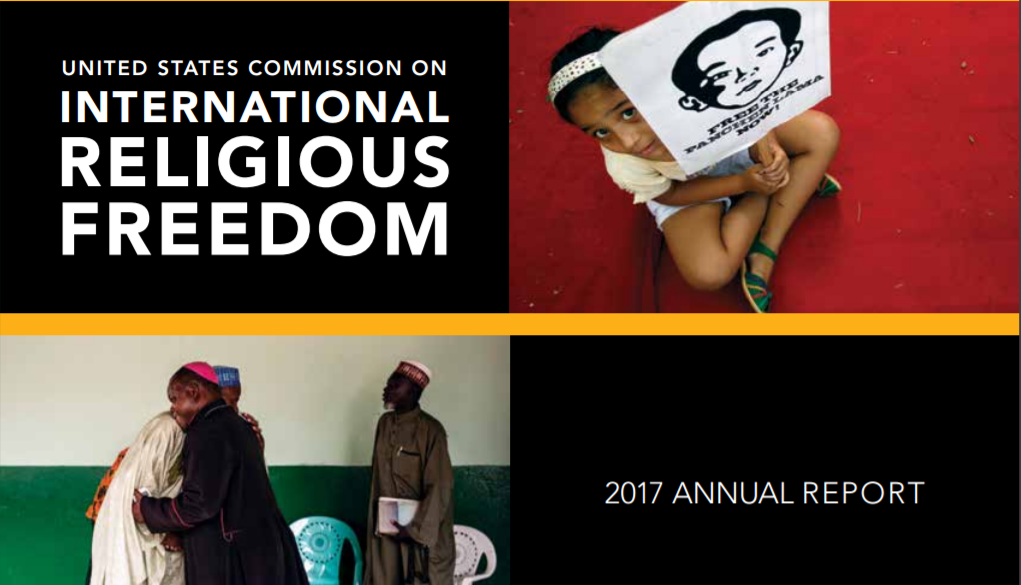On 26 April, the United States Commission on International Religious Freedom (USCIRF) released its 2017 Annual Report, labeling Saudi Arabia as a Tier 1 “Country of Particular Concern” (CPC) for severe violations of religious freedom. Americans for Democracy & Human Rights in Bahrain (ADHRB) welcomes USCIRF’s decision to continue placing pressure on Saudi Arabia by labeling it a Country of Particular Concern, alongside countries like Iran, North Korea, and Russia.
Saudi Arabia has been listed as a CPC by the State Department since 2004. Under its criteria, “countries of particular concern” have governments that “[engage] in or [tolerate] particularly severe religious freedom violations that are systematic, ongoing, and egregious.” USCIRF’s assessment of Saudi Arabia is in line with this and calls attention to the government’s ongoing religious freedom violations, stating that the kingdom “remains uniquely repressive.” This repression manifests itself in restrictions on religious expression and systematic discrimination against religious minorities. Of particular concern to USCIRF is Saudi Arabia’s government-sponsored repression of its Shia Muslim minority population, the lack of codified protections for non-Muslim religious expression, the use of apostasy, blasphemy, and sorcery charges to silence opposition, school textbooks that foster religious intolerance, and religiously-justified gender discrimination through the guardianship system.
“Saudi Arabia continues to act with impunity on a number of human rights issues, and its disregard for upholding freedom of religion is particularly concerning,” said Husain Abdulla, Executive Director of ADHRB. “USCIRF’s decision to maintain Saudi Arabia’s designation as a Country of Particular Concern should push the Trump administration to reconsider increasing diplomatic and military support to the monarchy. The US must hold its ally accountable for its state-sanctioned religious persecution or face accusations of complicity in human rights violations.”
Earlier this year, ADHRB released a report detailing Saudi Arabia’s systematic religious and cultural discrimination against its Shia Muslim population. Due to the government’s adherence to strict religious ideology, religious minorities are disadvantaged in the kingdom’s legal and court systems. The government regularly excludes Shia Muslims from high-ranking social and political leadership positions. Authorities have also targeted significant Shia religious and cultural sites for destruction, in addition to closing a number of Shia mosques. Saudi media also helps perpetuate stereotypes of Shia as disloyal to the monarchy and having ties to Saudi Arabia’s regional rival Iran. Authorities often perceive Shia activism as a threat, and the government executed prominent Shia cleric Sheikh Nimr al-Nimr in January 2016.
Although Saudi Arabia is classified as a CPC, the State Department maintains a waiver that exempts the kingdom from US sanctions required for countries with the Tier 1 status, in part due to its cooperation on counterterrorism efforts. Distressingly, USCIRF has stopped calling for the waiver’s removal based on positive changes the committee members witnessed during a recent visit to the country. However, as the Trump administration seeks to strengthen ties with the kingdom, the Commission emphasizes that the US government must press Saudi officials to implement substantial reforms that protect religious rights of all Saudis and expatriates. While ADHRB welcomes USCIRF’s categorization of the kingdom again as a CPC, it strongly urges the US government to address the issues of concern raised in the report with the Saudi government and to pressure the Saudi government to end religious discrimination.





